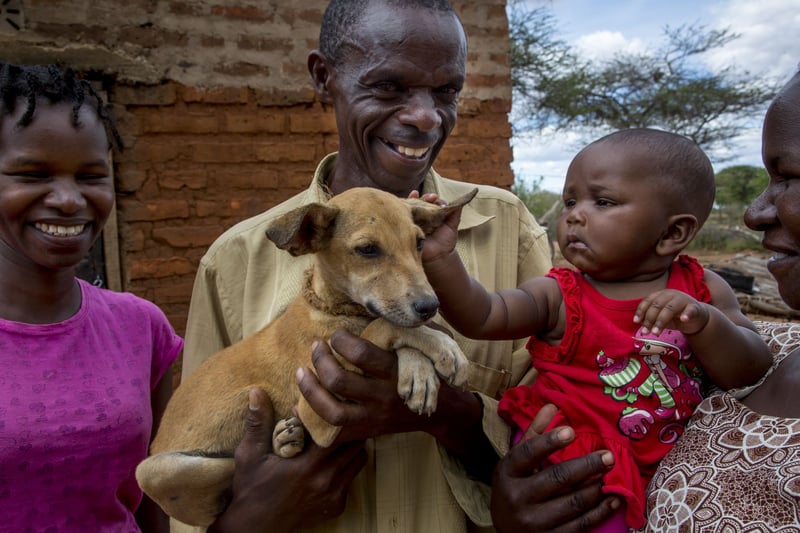
One of the lucky ones: meet Bruno
Press release
Bruno, is one of many lucky dogs across the world getting vaccinations to live the life they deserve, thanks to World Animal Protection’s vaccination programme.
Bruno, a happy and lively puppy is one of the lucky dogs receiving a rabies vaccination, as World Animal Protection celebrate issuing their one millionth vaccination.
In Kenya alone rabies kills up to 2,000 people every year. Deaths that are entirely unnecessary.
Rabies is a viral infection that is almost 100 percent preventable. And although canine rabies has been eliminated in many parts of the developed world, it is still a threat for countries in many parts of Africa and Asia says International charity, World Animal Protection.
Do not be fooled by the name, Bruno is a female and so named because her owner, Joseph wanted his little feisty puppy to have character and appear strong. She loves playing with chickens and other dogs, although eating cabbage and dozing in the shade comes a close second. Joseph is teaching Bruno how to be a guard dog to protect their home and animals so she can alert the family if a visitor or intruder is coming.
Bruno’s owner, Joseph says “Bruno is a protector, whenever she's around I feel ok. She’s part of our family and it would be devastating if we lost her, that’s why I’m vaccinating her, to protect her, like she does with us.
“Rabies is a real threat here; my neighbour’s daughter was bitten by a dog that was infected and no matter the money she spent to save her, she sadly died. Once bitten, if you are not treated, it’s incurable and it’s a scary threat to all of us here.”
World Animal Protection has already provided 16,332 vaccinations in 2014-15 in Makueni county in Kenya, and aim to do another 50,000 by the end of 2016.
Tennyson Williams, Director of World Animal Protection in Africa says “Rabies is the lightening-rod of all dog issues in Africa and any measures taken to control dogs are usually brutal and abusive but mostly ineffective.
“The situation in many parts of Africa is urgent and a major outbreak of rabies in African countries would be catastrophic - the experience of Ebola points to that because some countries lack infrastructure and resource to help prevent Rabies.”
World Animal Protection is working around the globe to end the cruel culling of dogs in the name of rabies. We’ve worked with governments in Asia and Africa to implement vaccination schemes since 2011 and show that this approach works. There are no human rabies cases reported in our pilot sites in China since we worked there in 2012 and in Zanzibar since 2013 - our results speak for themselves.
ENDS
Note to editors
- For an interview with a spokesperson, contact Kai Akram kaiakram@worldanimalprotection.org +44 (0) 7939 029 006 or Bev Boyle bevboyle@worldanimalprotection.org +44 (0) 7239 0563 / +44 (0) 7968 415 856
- We are also collaborating with the World Health Organisation (WHO), World Organisation for Animal Health (OIE) and the Food and Agriculture Organization of the United Nations (FAO) to eliminate rabies without culling dogs by 2030.